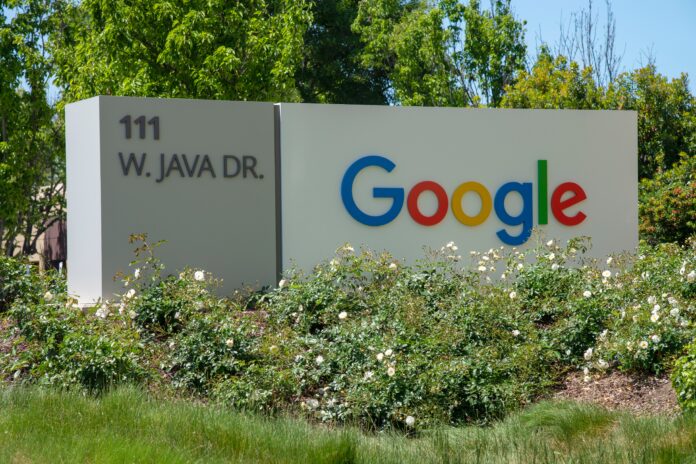Google AdSense is an advertising program operated by Google that allows website owners and creators of online content to monetize their platforms by displaying targeted ads. It enables publishers to generate revenue from their websites, mobile apps, and other digital properties by displaying contextually relevant advertisements. Google AdSense utilizes a pay-per-click (PPC) model, where publishers earn money each time a visitor clicks on an ad displayed on their website.
To participate in the Google AdSense program, publishers need to sign up and have their websites or apps reviewed and approved by Google. Once approved, publishers can customize the appearance of the ads to match their website’s design and content, and then place the ad code on their webpages. The ad code is responsible for fetching and displaying the ads, ensuring that they are relevant to the content and audience of the website.
Now, let’s dive into the five important aspects of Google AdSense that every publisher should know:
1. Monetization Options: Google AdSense offers various ad formats and monetization options to suit different platforms and content types. Publishers can choose from text ads, display ads, native ads, video ads, and more. These formats can be tailored to fit the layout and design of the website or app, ensuring a seamless user experience while maximizing revenue potential.
2. Targeted Advertising: One of the key strengths of Google AdSense is its ability to deliver highly targeted ads. The program uses advanced algorithms to analyze the content of a webpage and determine the most relevant ads to display. This targeted approach benefits both publishers and advertisers. Publishers receive ads that are more likely to resonate with their audience, increasing the chances of engagement and clicks. Advertisers, on the other hand, can reach their target audience more effectively, improving the return on their advertising investment.
3. Ad Auction and Revenue Optimization: Google AdSense incorporates an ad auction system, where advertisers bid for ad placements on publishers’ websites. The auction takes place in real-time, with ads competing based on factors like bid amount, ad quality, and relevance. The winning ad is then displayed on the publisher’s website, and the publisher earns revenue from the click or impression. Google’s ad auction system aims to maximize revenue for both publishers and advertisers by finding the right balance between bid price and ad quality.
4. Performance Tracking and Reporting: Google AdSense provides publishers with comprehensive performance tracking and reporting tools. Publishers can access detailed data about their ad impressions, clicks, earnings, and other key metrics through the AdSense dashboard. This information enables publishers to analyze the performance of their ads, identify trends, and make informed decisions to optimize their ad placements and maximize revenue.
5. Policy Compliance and Support: AdSense has strict policies regarding ad placement, content guidelines, and compliance with Google’s terms of service. It is crucial for publishers to familiarize themselves with these policies to avoid any violations that may lead to penalties or suspension of their AdSense accounts. Google also provides support resources, including help centers, forums, and community support, to assist publishers in understanding the program and resolving any issues they may encounter.
Google AdSense offers a valuable opportunity for publishers to monetize their online platforms through targeted advertising. By understanding the various monetization options, leveraging targeted advertising, optimizing revenue through ad auctions, tracking performance, and adhering to policies, publishers can effectively generate revenue while providing a positive user experience.
Google AdSense is an advertising program operated by Google that allows website owners and creators of online content to monetize their platforms by displaying targeted ads. It enables publishers to generate revenue from their websites, mobile apps, and other digital properties by displaying contextually relevant advertisements. Google AdSense utilizes a pay-per-click (PPC) model, where publishers earn money each time a visitor clicks on an ad displayed on their website.
To participate in the Google AdSense program, publishers need to sign up and have their websites or apps reviewed and approved by Google. Once approved, publishers can customize the appearance of the ads to match their website’s design and content, and then place the ad code on their webpages. The ad code is responsible for fetching and displaying the ads, ensuring that they are relevant to the content and audience of the website.
One important aspect of Google AdSense is the range of monetization options it offers. Publishers can choose from various ad formats such as text ads, display ads, native ads, and video ads, depending on their preferences and the suitability of their platform. This flexibility allows publishers to seamlessly integrate ads into their website or app while maintaining a cohesive user experience. By offering diverse ad formats, Google AdSense caters to different content types and helps publishers optimize their revenue potential.
Another crucial feature of Google AdSense is its ability to deliver targeted advertising. Through advanced algorithms, Google analyzes the content of a webpage and determines the most relevant ads to display. This targeted approach benefits both publishers and advertisers. Publishers receive ads that are more likely to resonate with their audience, increasing the chances of engagement and clicks. Advertisers, on the other hand, can reach their target audience more effectively, improving the return on their advertising investment.
Google AdSense incorporates an ad auction system, which plays a vital role in revenue optimization. Advertisers bid for ad placements on publishers’ websites, and the winning ad is displayed based on factors like bid amount, ad quality, and relevance. The ad auction takes place in real-time, ensuring that publishers receive the highest possible revenue for their ad space. This dynamic system helps strike a balance between the bid price and ad quality, maximizing revenue for both publishers and advertisers.
In addition to monetization and revenue optimization, Google AdSense provides publishers with robust performance tracking and reporting tools. The AdSense dashboard offers comprehensive data on ad impressions, clicks, earnings, and other key metrics. This information empowers publishers to analyze the performance of their ads, identify trends, and make data-driven decisions to optimize their ad placements and maximize revenue. The ability to track and monitor performance is crucial for publishers to understand their audience and continually refine their advertising strategies.
While participating in the Google AdSense program, publishers must comply with strict policies regarding ad placement, content guidelines, and adherence to Google’s terms of service. AdSense policies are in place to ensure a positive user experience and maintain the integrity of the program. Publishers should familiarize themselves with these policies to avoid any violations that may lead to penalties or suspension of their AdSense accounts. Google provides support resources, including help centers, forums, and community support, to assist publishers in understanding the program and resolving any issues they may encounter.
In conclusion, Google AdSense offers publishers a valuable opportunity to monetize their online platforms through targeted advertising. By leveraging the range of monetization options, benefiting from targeted advertising, optimizing revenue through ad auctions, tracking performance, and adhering to policies, publishers can effectively generate revenue while providing a positive user experience. Google AdSense continues to be a popular choice for publishers seeking to monetize their digital properties and capitalize on the potential of online advertising.

















